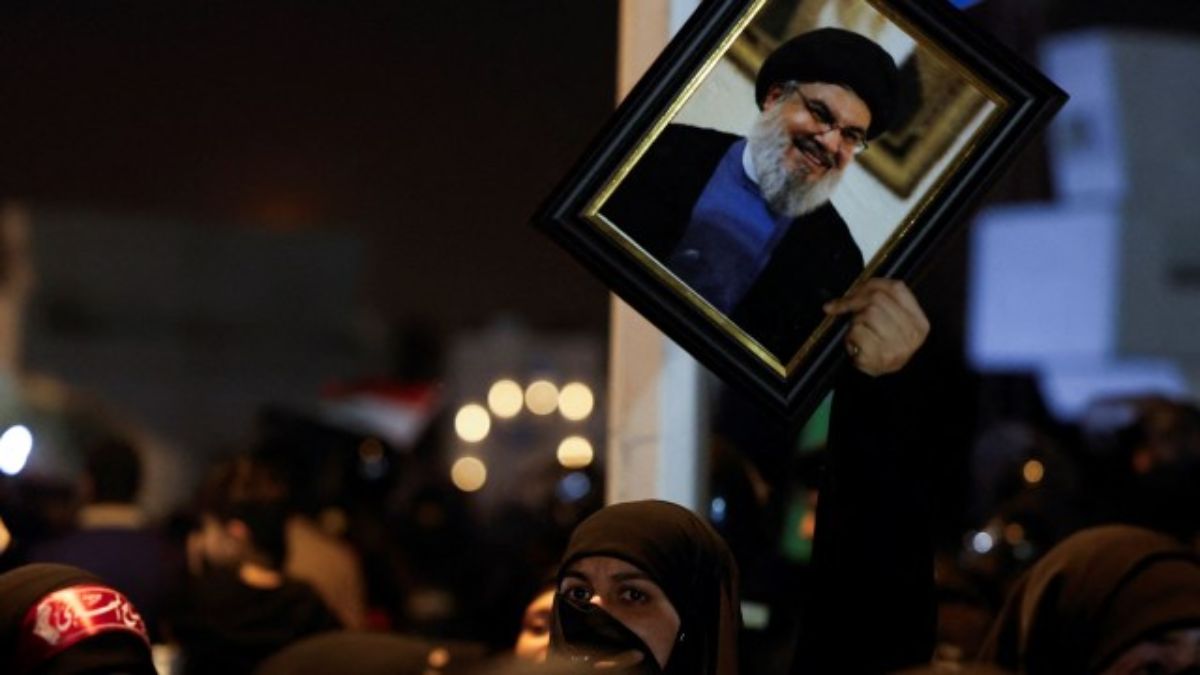One cannot say whether these were strategically choreographed events, but the speech of Israeli Prime Minister Netanyahu at the UN General Assembly, the reported killing of Hezbollah leader Hassan Nasrallah in an aerial strike, and the threatened ground invasion of Lebanon by the Israeli Defence Forces (IDF) all seemed to be in perfect sync.
That is something a little more like the IDF of the past: efficient, ruthless, timely, and not the tardy way it became the target of the major cross-border terrorist act on October 7 last year. Israel has turned its attention towards Hezbollah after focussing on Hamas in Gaza over the last one year. Nasrallah’s death is a result of that.
On October 7 last year, the IDF lost much of its sheen and reputation when it got struck by a surprise cross-border attack from Gaza Strip by Hamas, which is essentially a non-state entity, resulting in 1,200 Israelis dead and over 250 taken away as hostages. It has taken almost a year of a brazen no holds barred IDF aerial and ground campaign, which has simply used the doctrine of destructive dominance to curtail the Hamas presence and capability in Gaza, but not to a convincing level.
Both Hamas and Hezbollah are proxies of Iran, which has major stakes in the Middle Eastern conflict. It’s the reluctance and the lack of military capability of the Arab nations that have yielded space to Iran as a major stakeholder. Hezbollah is a Lebanese organisation formed in 1982 by the Shia clergy in Lebanon to evict the IDF from so-called Islamic territories and militarily engage and harass Israel.
Hamas is a Palestinian group that formed in Gaza in 1987 after the beginning of the first Intifada against Israel’s occupation. They are separate entities but share the objective of armed resistance against Israel. Hasan Nasrallah became Secretary General of Hezbollah in 1992.
Impact Shorts
More ShortsWhy has Israel turned attention to target Lebanon?
Hezbollah was not involved in the October 7 attack, but since then it has upped the ante to target the northern borderlands of Israel, resulting in more than 90,000 people displaced from their homes. The world, preoccupied with the events in Gaza, has forgotten about the displaced Israelis of the north that happened due to Hezbollah’s cross-border firing of rockets into population centres. Thus, as soon as Israel got a bit of a reprieve from Gaza, it turned attention towards the north.
Israel has killed several Hamas and Hezbollah leaders, including Ismail Haniyeh, who was recently killed in Iran. The US had in 2019 killed Iran’s Islamic Revolutionary Guard Corps (IRGC) commander, Qasem Soleimani, and in recent months more Hezbollah and Hamas commanders have been neutralised through missile and air strikes in Syria. However, much more is being made of Nasrallah’s killing; why?
Actually, this is a body blow to both Iran’s proxy warfare in the Levant and Israel and also a severe setback to Hezbollah because Nasrallah had a larger than life persona and had been the leader for 32 years. Many would compare this to the killing of Osama bin Laden (OBL) in Abbottabad, Pakistan, in 2011. Al Qaeda could never maintain the same stature under OBL’s successor, Ayman al Zawahiri.
Nasrallah gained a reputation particularly in 2006 during the Israel-Lebanon war which was chiefly fought with Hezbollah and resulted in a stalemate. Hezbollah became the first non-state actor in the Middle East which claimed victory against Israel due to Israel’s inability to gain a clear military advantage. It will not be easy to replace Hasan Nasrallah in the near future.
Israel’s strategy on the northern front
Throughout the current conflict, Hezbollah has claimed that the group’s cross-border strikes have diverted the IDF resources, which otherwise would have targeted Hamas in Gaza. With Gaza militarily stabilising to some extent, the IDF wished to switch focus because of the increasing Hezbollah strikes on the northern Israeli population.
More importantly, the IDF wishes to overcome the psychological hangup of the failure of 2006 and punish Hezbollah. Starting with the cyber-related pager attack to precision bombing of Hezbollah weapon emplacements, the IDF is following a similar doctrine as in Gaza. It warned the civilians to evacuate and has shown no remorse towards the collateral damage it is inflicting. It’s ‘shock and awe’ of a different kind. The operation to target Nasrallah was a major intelligence success.
Expectations of ceasefire
A ceasefire is very unlikely whether in Gaza or on the northern front, but Netanyahu has gained a moral victory by speaking aggressively at the UN General Assembly and following it up with success in Lebanon. The refocus from Gaza towards the northern front is just about optimising. A few units have redeployed, and more are on the way. The IDF would like to keep the pressure and push the Hezbollah fighters back. One should not expect an IDF roll deep into Lebanon; that will create problems for the future. All that it wants to do is create an exclusion zone so that Hezbollah cannot use short-range projectiles against the Israeli-populated areas.
We should expect to hear a lot of threats from Iran, but these are unlikely to manifest. Israel will now be on a high but needs to be careful that its actions do not upset the careful balance in the Middle East and further spread the conflict. Until the US elections are over and till Inauguration Day, one can expect the status quo with continued Israeli efforts to weaken both Hamas and Hezbollah, especially as they now have an uncertain and inexperienced leadership. Hezbollah’s military capability in 2006 has been largely neutralised by the IDF’s technological advancement. The Houthis in Yemen would try to gain some prominence at this juncture.
The writer is a Member of the National Disaster Management Authority. Views expressed in the above piece are personal and solely those of the author. They do not necessarily reflect Firstpost’s views.
)